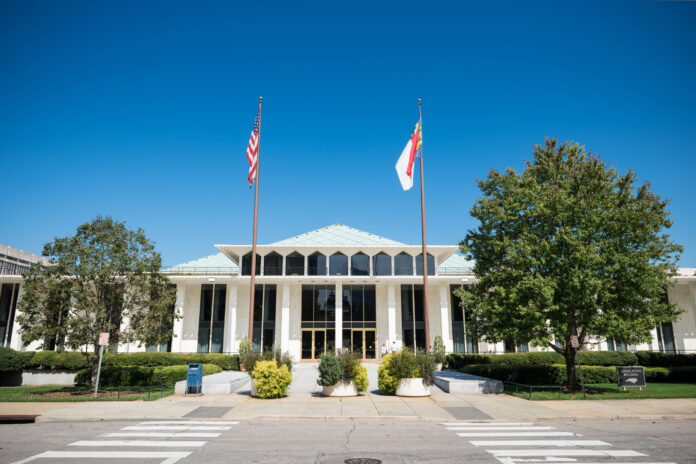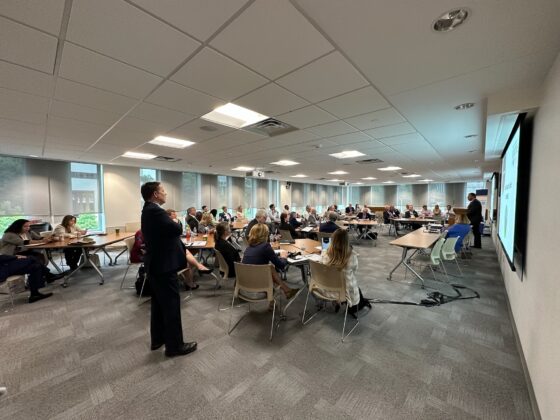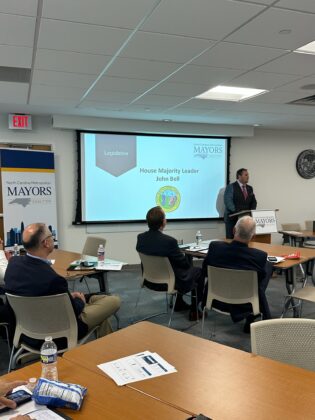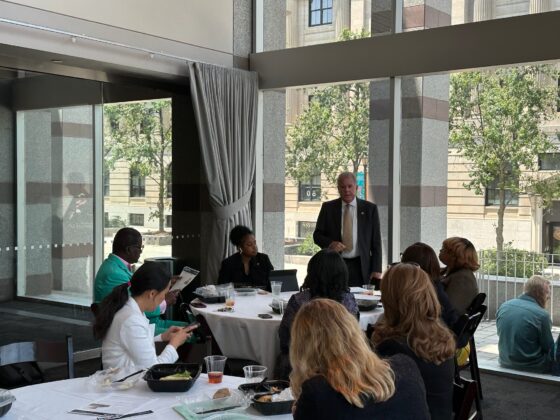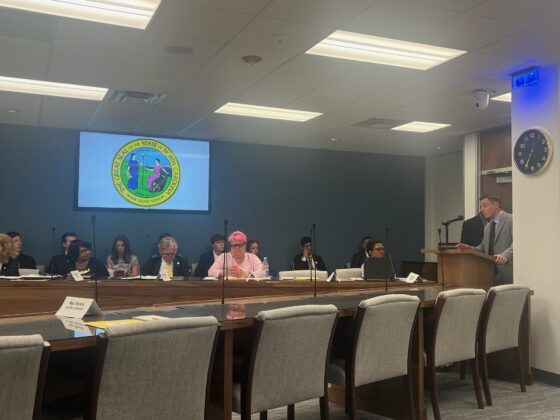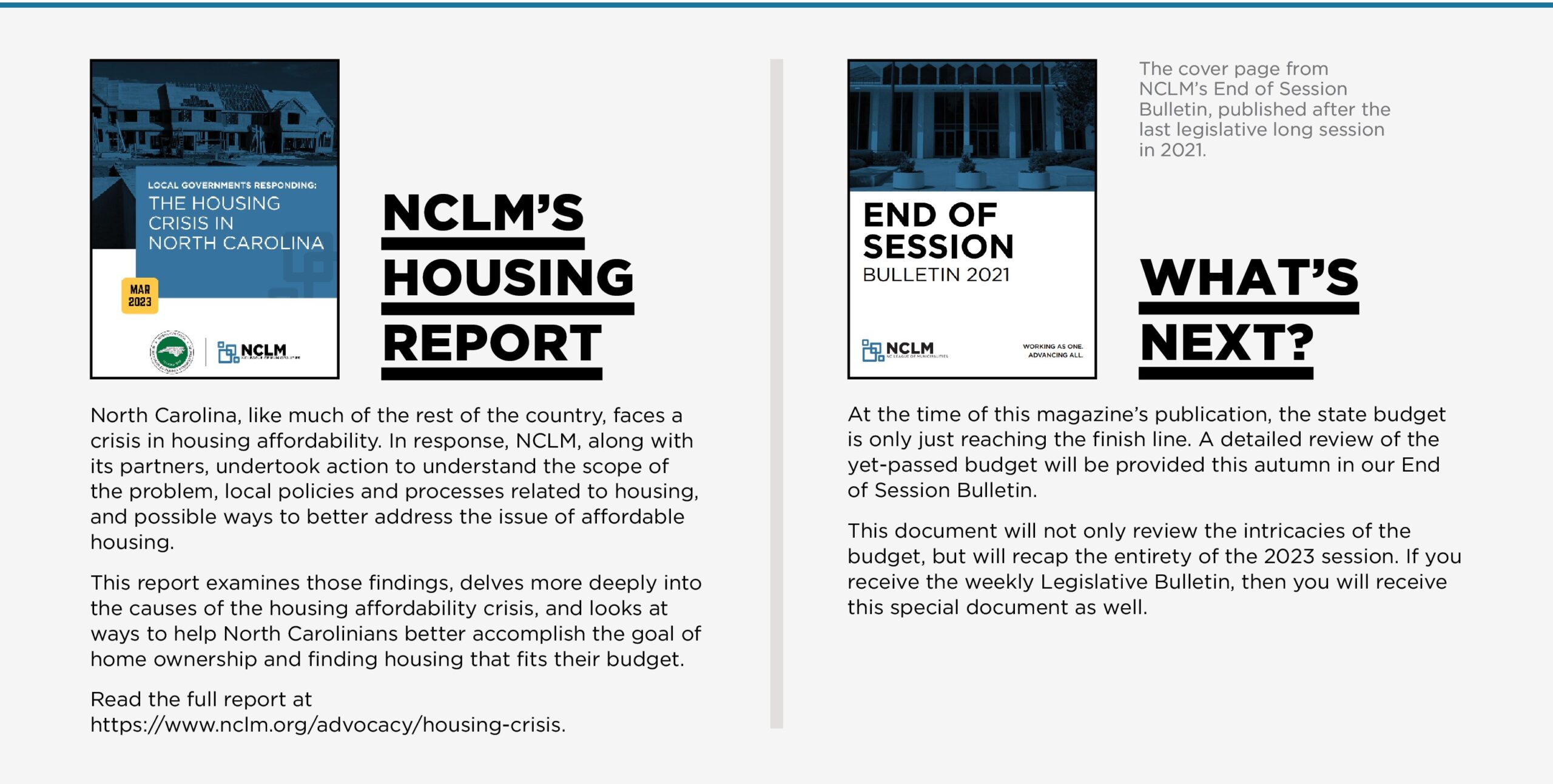The 2023 legislative session has been a long and winding journey, and one that, as of this writing in mid-September, still had not ended.
(A budget bill has been drafted, but not yet signed into law. NCLM will closely review all provisions included in the budget and provide a detailed report in our End of Session Bulletin, detailed in the sidebar here. Stay tuned.)
Budget aside, much of the specific legislation affecting city and towns had either passed or was unlikely to do so in the remaining time that state lawmakers expect to meet in Raleigh. Instead, the remaining chores before the General Assembly mostly centered some pending votes to override vetoes by Gov. Roy Cooper, the likelihood of another round of electoral redistricting and, again, that yet-passed budget.
Land Use and Local Authority Challenges
The legislative session began quite differently than those of recent years, with a renewed push on policy fronts of all sorts. That was not surprising given that a lot of policy matters, since 2019, had taken a back seat to dealing with the effects of the global pandemic, including sorting through the available federal money pushed out to the states to keep local economies and government going.
With that shift came very significant challenges to local land-use and planning authority. A nationwide housing affordability crisis served as fodder for homebuilders and other groups to blame local regulation on rising home prices. In response, legislators filed bills to eliminate extraterritorial jurisdiction, abolish single family-only zoning and require that accessory dwelling units, or in-law suites, be allowed in all residential neighborhoods.
NCLM staff and members were not unprepared. A report on housing, produced in association with the N.C. County Commissioners Association, used real data from local planning and building inspection departments to show how much growing jurisdictions across the state are doing to address housing and increase density in areas where appropriate (see sidebar). It also demonstrated the efforts that local governments are undertaking to improve inspection processes, and included recommendations for similar procedures to duplicate those efforts.
Armed with this report and other educational data, by the summer it appeared that NCLM members and staff had successfully pushed back against much of the legislation eroding local land-use planning authority. That local officials had focused for several years on developing better relationships with their state legislators played a key role in that success. Reinforcing the need for local control in order for local economies to thrive paid off during the legislative battles over these issues.

Infrastructure Funding
When the House and Senate had moved into mid-August without final budget approval, the budget proposals from both chambers continued a trend of investing large sums in water, sewer, and transportation infrastructure, which remain key legislative goals of cities and towns.
More than $750 million was poised to go to water, sewer, and stormwater programs. State aid to municipalities for roads, better known as Powell Bill, was expected to increase by 10%, with a total allocation of $170 million for the new fiscal year. Substantial new investments also were proposed for law enforcement training programs, reflecting another key priority of cities and towns. Hundreds of millions also went to economic site preparedness, local parks, and capital improvements for local airports.
More Information to Come
Without a final gavel falling on this year’s legislative session, the possibility of surprises always remains. Still, the likely results proved again that the voices of municipal officials, exercised collectively, are a powerful force.
There may have been days, filled with hurried committee meetings or exasperating floor votes, where the gloom blocked out the sun, where it appeared those voices weren’t being heard. Then they were.
A legislative session is not a sprint, but a marathon.
It certainly has been in 2023.


